Victoria’s best farmers under 35 and how they compare to others across Australia
Victoria has 19 of the top farmers aged under 35 but see how they compare to the rest of Australia’s new farming generation. SEE THE FULL LIST
News
Don't miss out on the headlines from News. Followed categories will be added to My News.
The future of Australian farming is in good hands.
Our snapshot of 35 great farmers under the age of 35 reveals a group that is passionate, dedicated and excited by what lies ahead. They excel at producing our nation’s food and fibre and are bubbling with ideas for their industries and communities.
Here’s our look at some of the best and brightest young people in farming.
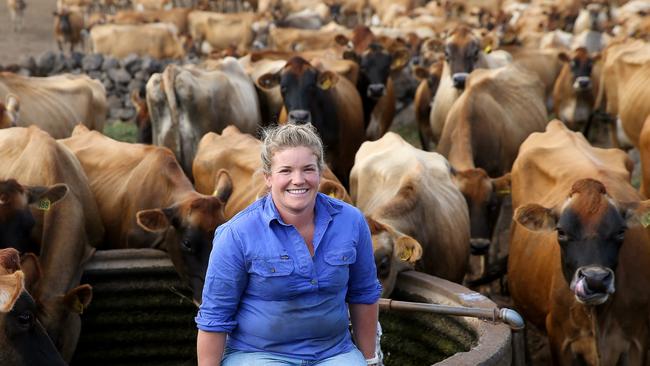
SARAH CHANT, DAIRY FARMER, WARRION, VICTORIA
Giving young farmers a fair go is a top priority for dairy farmer Sarah Chant, and she believes retaining young people on the land should be a priority for governments.
“If I had an opportunity to speak to the PM or the Opposition Leader, I’d say farmers, particularly young farmers, aren’t getting a fair go,” Sarah said.
The Warrion farmer has operated a 250-head property in the Colac region for the past year independently, but has worked on the family farm since she was young.
Sarah also believes several generations of young Australians do not have a basic understanding of agriculture.
“We really need to take on the animal rights movement in the schools — give kids the facts from an early age,” she said. “Farmers care for their animals, but the big problem in the city is people don’t know where their food comes from or get the wrong idea about how farms go about their business. If we had classes focused on farming, it would clear up that misinformation.”
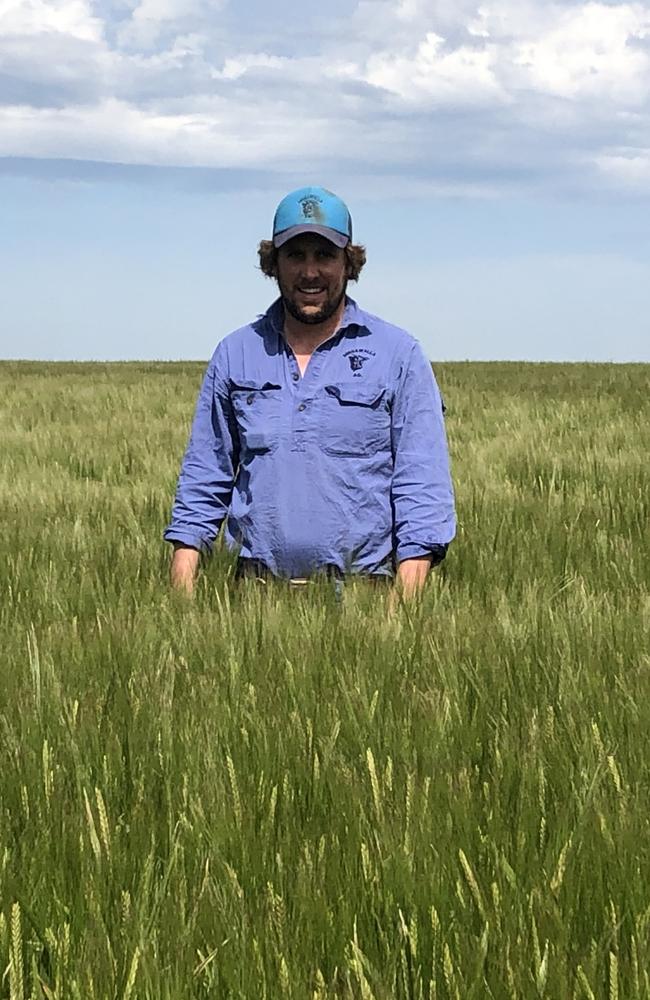
SHEEP AND BEEF FARMER LACHIE BARCLAY, BEEAC, VICTORIA
Lachie Barclay has a long family history at Mingwalla in Beeac. He is a fourth-generation sheep and cattle farmer and is continuing the legacy on the farm he grew up at.
He took four years away from the farm to work on sheep stations in the NSW Riverina before studying at Marcus Oldham and then getting a job as a livestock agent in Ballarat.
“I was always keen to do something in the agriculture sector, but I’m probably more passionate about the livestock,” he said.
Fortunately, he is now in charge of 1000 cattle and 2500 first-cross ewes, which he runs across 2023 hectares at Beeac and Inverleigh.
He said the diversity of the job is what keeps him excited about agriculture.
“I’m always doing something different, there’s always new challenges to overcome and it can be very rewarding,” he said.
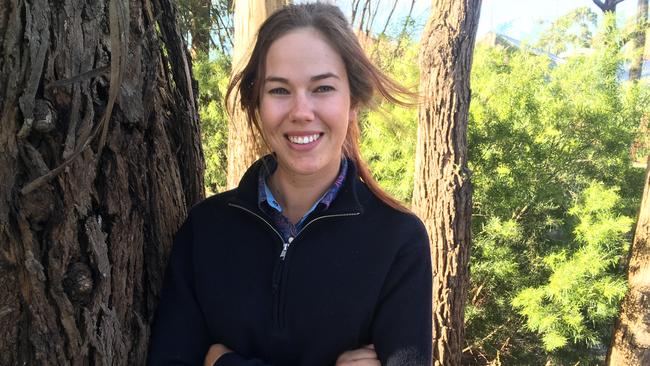
ZOE CARTER, FARMHAND, VICTORIA
Zoe Carter is passionate about advocating for more education around the agriculture industry. Zoe, who previously worked on a cattle farm in Western Australia, said a lack of agricultural education in schools has made the spread of misinformation easier in the digital age, and that better education for schoolchildren was vital to future-proof the industry.
And it is something she had experienced first-hand. Although Zoe has now worked in a wide range of agricultural fields, she grew up as a city kid, where she experienced the lack of education.
“The Australian school system leaves this huge gap for students who don’t study agriculture (they don’t learn) about the meat industry, dairy industry, horticulture and cropping,” she said. “And what happens with that gap, this is where social media like to comes in, and fills in that gap with misconceived uneducated ideas, and unfortunately, that’s what gets stuck in people’s heads.”
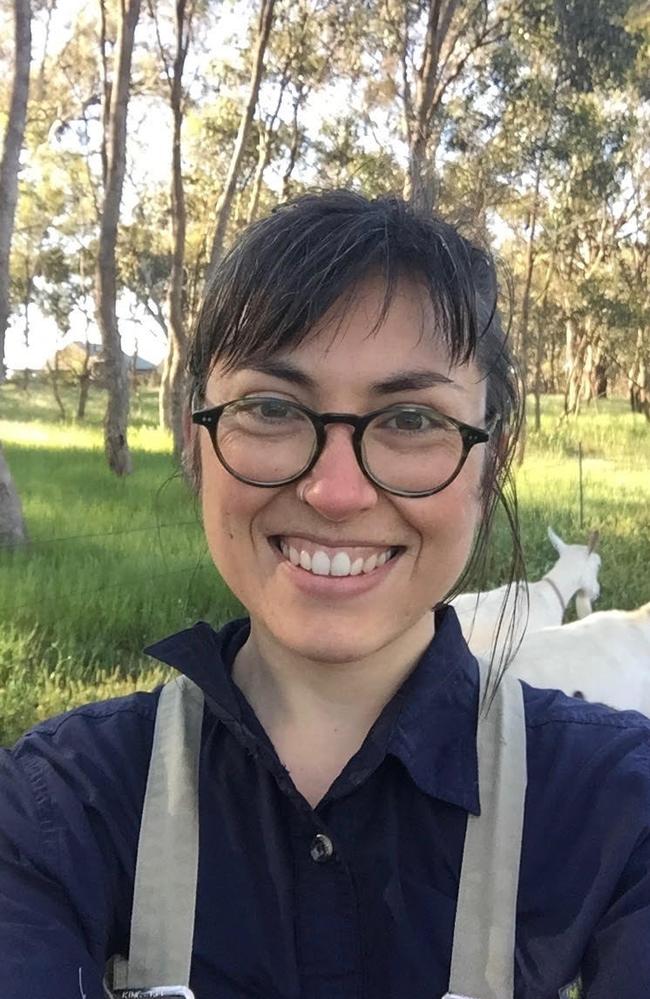
GOAT DAIRY FARMER SOPHIA CHIRSTOE, TRENTHAM, VICTORIA
A passion for sustainability led Sophia Christoe to a life on a goat dairy farm.
“I wasn’t initially interested in farming when I was younger,” Sophia said. “My passion in high school was to do something related to ‘saving the planet’.”
After realising food and farming were a “massive opportunity” to create sustainable relationships with land – Sophia began working on an organic farmhouse goat cheese business as a goat milker and cheesemaker.
“We milk 100 goats – with about 30 others on farm,” she said. “It is a beautiful interaction relating with another species.
“It’s an incredible industry, where we get to combine art and science.”
And the season at the farmhouse has been ideal, Sophia said.
“We had the first autumn break in a long time. We have had good rainfall, and a great start to spring.”
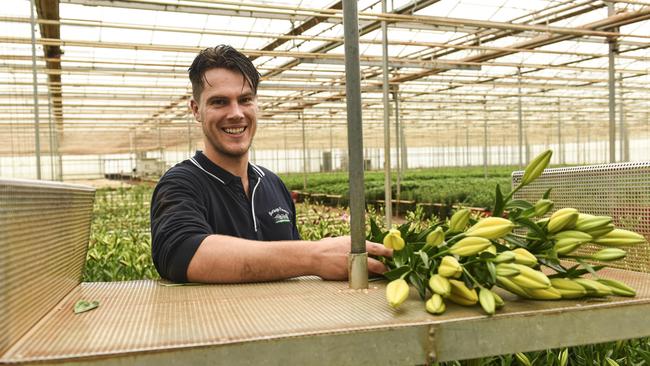
FLOWER GROWER LUKE DE WIT, SILVAN, VICTORIA
The flower business is blooming for Luke de Wit of Burleigh Flowers.
He joined the family farm three years ago after studying a degree in economics and working on flower farms in Holland.
The third-generation business grows oriental and LA lilies in 3.5 hectares of greenhouses, which are imported from Holland.
Luke said the family operation runs smoothly with a lot of helpers, including 12 to 15 year-round full-time employees.
“Dad is still here every day and Mum does all the bookkeeping, it’s very much a three-person team still.”
He is now looking at ways to get his flowers into a broader market across the country.
“We were very supermarket orientated and now we’re trying to diversify,” he said. “We want to sell lilies everywhere in Australia, not just the one segment.”
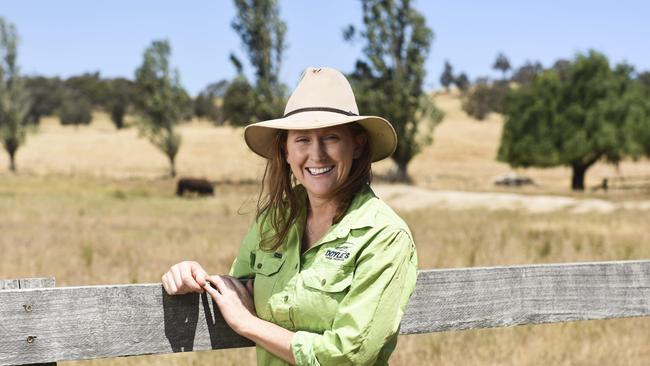
BEEF FARMER BRIDGET DOYLE, BENALLA, VICTORIA
Bridget Doyle has always had a passion for agriculture. But she has juggled her passion with working as a full-time landscape architect and also working full-time with her husband, managing 250 cattle on their Benalla farm.
Last year, the farmer used her maternity leave to head back to school to do a certificate IV in agriculture at TAFE.
“There’s always been that passion there,” she said, “It just took 10 years working in another industry … (but) it’s good to try other things and bring back new skills.”
Bridget grew up on a family cattle and potato farm at Berrigan, NSW. Her father was the first farmer to use a mobile abattoir in Australia for commercial slaughtering earlier this year.
As part of the family’s succession plan, the young couple bought their 162-hectare Benalla property a few years ago to expand the family’s breeding of Herefords.
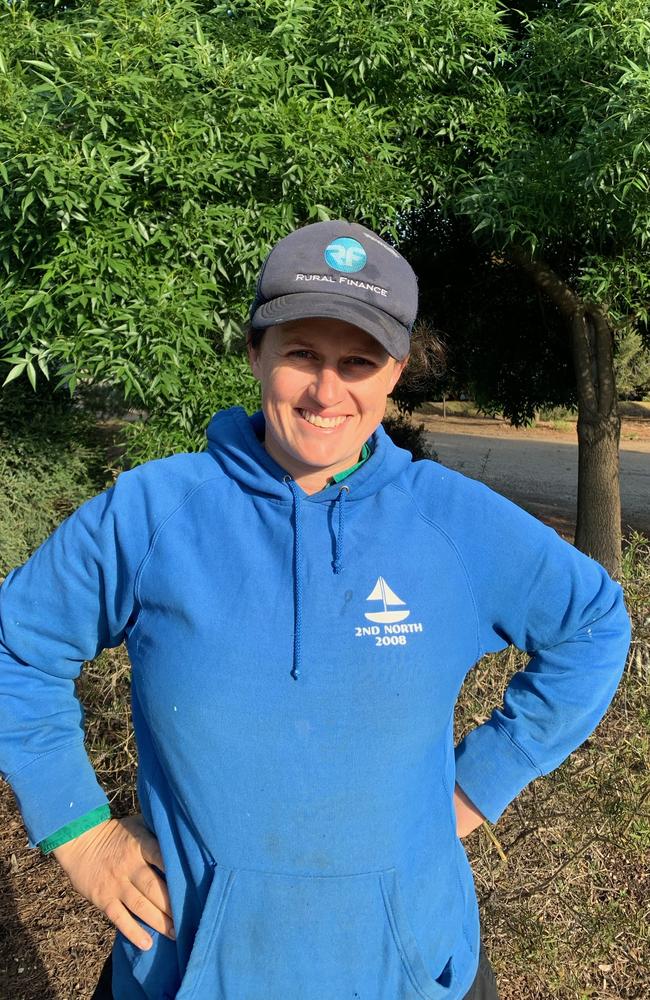
GRAIN GROWER TESS HEALEY, RUPANYUP, VICTORIA
It took Tess Healy a little while to realise that working on the farm was where she wanted to be.
Now she is back at the family cropping farm in Rupanyup, where a rotation of cereal, legumes and canola is grown.
“It wasn’t a deliberate move at the time, I had just finished up at another job in town and I asked mum and dad if there was anything I could do to help. I stuck around and it’s been four years and it’s been really good,” she said.
Her involvement in the community has also stretched to helping out on the town’s events committee and pitching in to keep the local pub open.
In her time away from the farm, she obtained a degree in agronomy, which she says has been a huge help in her day-to-day tasks.
“It’s a good starting point to outline the things I need to know as opposed to learning as I went,” she said.
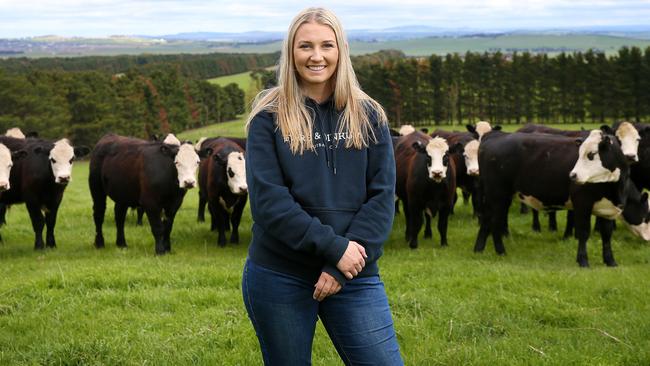
CATTLE FARMER DARCEY HEFFERNAN, BEVERIDGE, VICTORIA
Third-generation cattle farmer Darcey Heffernan always wanted to take over the family farm when she grew up. But she didn’t think she would be in charge at just 21.
“Growing up, I always wanted to work with animals or agriculture, but I never thought I’d be capable of managing the farm,” she said.
She has been in charge since the start of 2019 and has big plans for the future of the business, including changing the way they sell stock.
“We’re selling our bottom (performing steers) portion and keeping our top (performing steers) to finish them off and sell later in the year on the fat market,” Darcey said.

GOAT DAIRY FARMER ISIS JORDAN, TRENTHAM, VICTORIA
Working on a goat dairy was not where Isis Jordan thought her life would take her. But she wouldn’t want it any other way.
Her connection to the industry came from her aunties, who own the Holy Goat dairy in Trentham, and she used to visit on family holidays from Loganholme in Queensland.
With a double degree in ecology and anthropology under her belt, heading to Victoria to work in agriculture was an unexpected but enjoyable career move.
“I really did not think that my life would lead me to being a farmer but it really suits me, particularly on this farm. There’s a really strong sense of community,” she said.
Adding to her extensive range of skills, Isis is assistant goat milker and cheesemaker on the farm and said she has valued the things she’s been able to learn.
“It’s a place where you have to wear many hats and be broad with your knowledge,” she said.
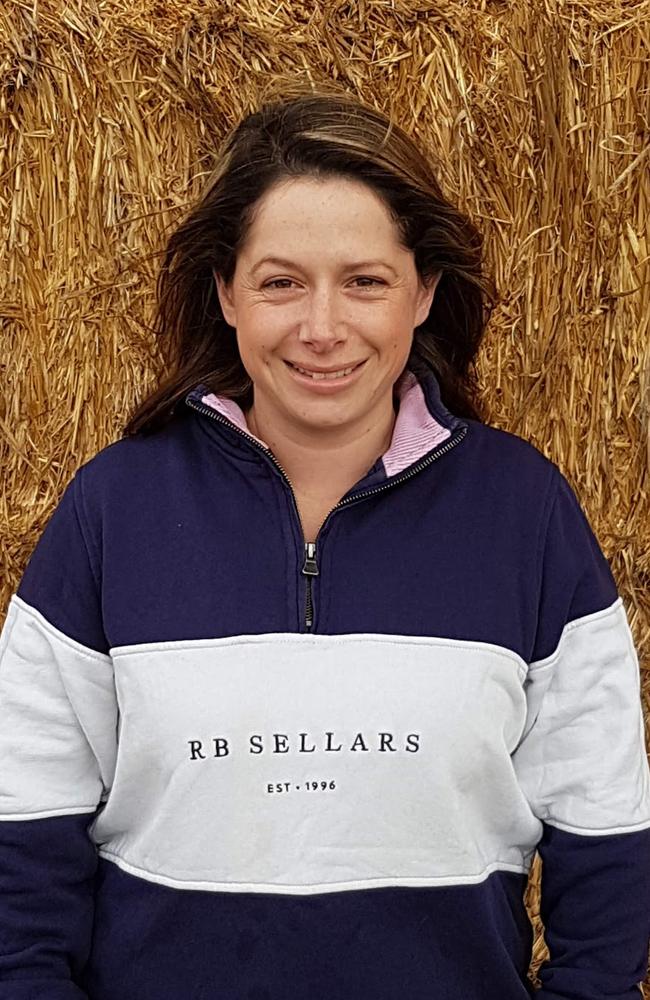
DAIRY FARMER JESSICA KNIGHT, STRATFORD, VICTORIA
Meeting her husband in the last year of studying a law degree at university resulted in a career change to dairy farming for Jessica Knight.
“I knew nothing about the industry, and it was a steep learning curve as I had two kids at the time and we have three now,” Jessica said.
“I spent five years going to every open day and learning as much as I could.”
The pair now own a dairy farm at Stratford, which they bought in 2015, starting with 200 dairy cows. They now have 300 cows and plan to increase that to about 500 over the next year.
“I’m passionate about the industry – I wouldn’t get up and 4am if I didn’t love what I was doing,” she said. “I love the rural community spirit.”
And a life on the farm hasn’t stopped Jessica pursing study, and she is now currently studying a Masters of Agribusiness.
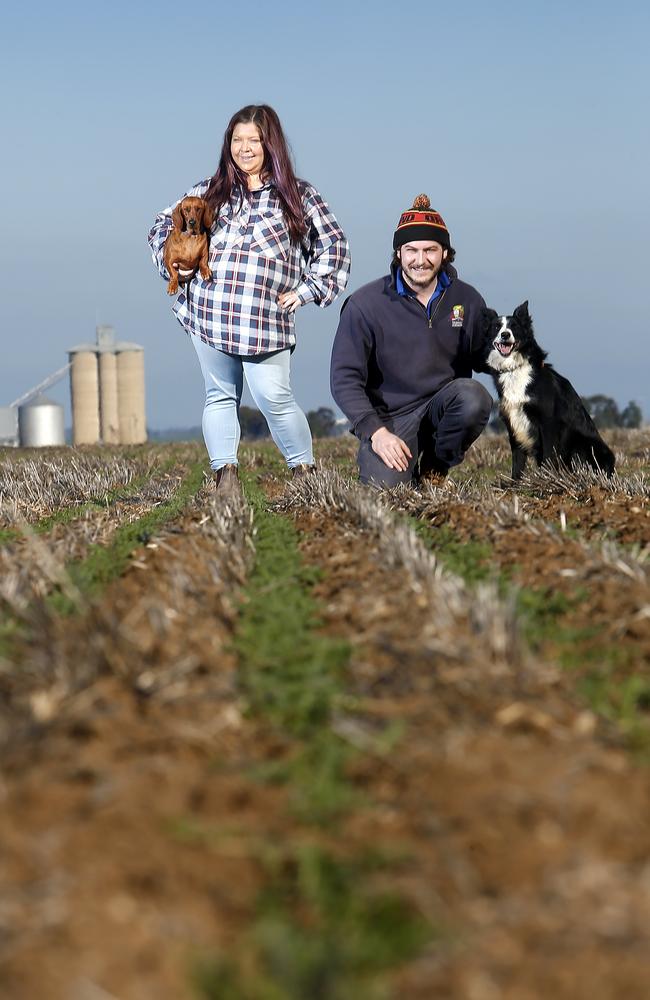
PULSE GROWER DOMINIQUE MATTHEWS, RUPANYUP, VICTORIA
Pulses are a family business for Dominique Matthews of Rupanyup.
The 1400-hectare Burrum farm has more than 400 hectares dedicated to the crops, which her father David pioneered in the area. They grow chickpeas, red lentils and the coveted Le Puy French green lentils exclusively, and what they produce ends up in products sold in town — by her aunty.
“I love that we are growing crops that we know will end up as chickpea flour, lightly salted chickpeas, lentil straw snacks or even lentil burgers grown here by us and processed and sold by my aunt,” Dominique said.
She enjoys growing pulses as it’s a different kind of cropping, and something that people in the health industry are getting excited about.
“They’re good to grow; I find pulses more interesting than wheat or barley because you are not monoculture farming and there are so many uses for them, that you feel like you are part of the new trend of helping people eat healthier,” she said.
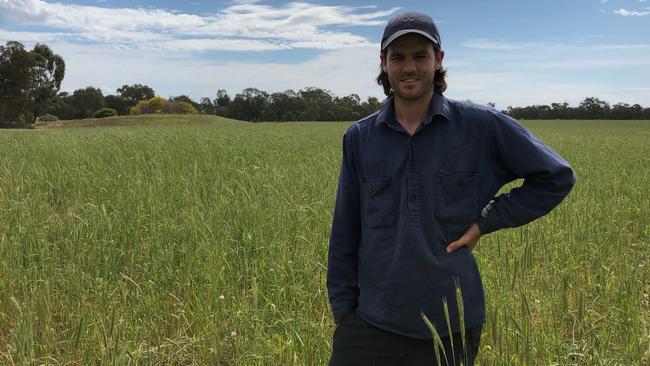
WOOL GROWER DOUGAL MCALLISTER, RUPANYUP, VICTORIA
Growing up through one of the country’s worst droughts did not make farming appealing to Dougal McAllister. But once he began studying environmental science he saw potential in his family’s Rupanyup wool operation.
“We’re currently converting it across with a holistic plan for grazing and reducing synthetic inputs,” he said.
The farm has 400 Merino ewes on 400 hectares and they predominantly produce wool.
Dougal said a driving factor behind making farming his career was the ability to make some sustainable change.
“The main reason was agriculture needs to mitigate and adapt to climate change and it’s in a pretty unique position to do that.”
Encouraging sustainable agricultural practices to other farms in the area, Dougal said he liked the variety of work and feeling of achievement.
“I enjoy having really long-term goals and being able to do lots of different things to reach them,” he said.
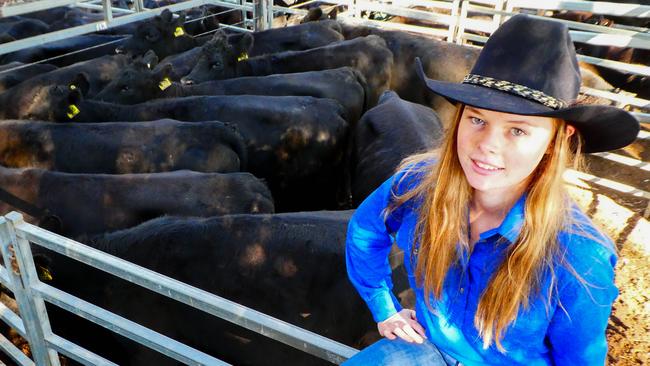
BEEF AND DAIRY FARMER ERIN MCCORMACK, POREPUNKAH, VICTORIA
At just 17 years of age, Erin McCormack knew from an early age that farming was her thing.
Although she’s still in high school, the Porepunkah student is currently working on a dairy farm in the Buckland Valley, while also helping out at the family’s cattle and vegie farm.
The third-generation farmer said she has always been involved in the family tradition and their legacy was a big reason she wanted to continue in farming.
“Because my grandfather and father are farmers, I would like to continue on the farm. I don’t want to be the one to break that,” she said.
Erin hopes the next few years will see her get back to her cattle roots and able to travel the country to gain some different experience.
“I’d like to go down the line of beef farming and go out on a station and explore pretty much,” she said.
“I like how farming can mean you can travel many places and you’re not doing the same thing everyday.”
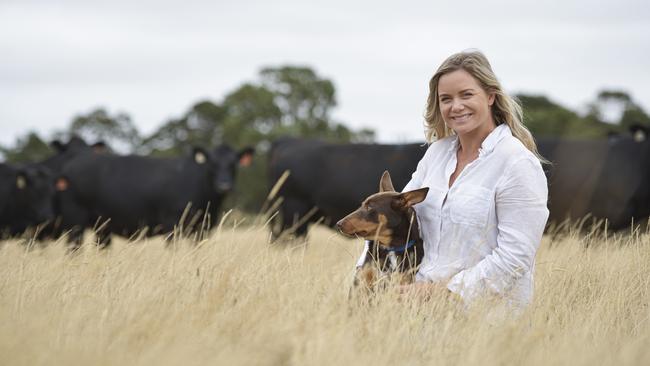
SHEEP AND BEEF FARMER ELLE MOYLE, GAZETTE, VICTORIA
A lot of Elle Moyle’s expertise as a farmer has come from YouTube videos and memories from her childhood on her parents farm.
And as Hamilton’s district vet, it has been a huge adjustment for her.
“I did six years of training to be a vet, and now I’m here figuring out how to plumb troughs and set up a solar-powered water system,” she said
While still working full-time as a vet for producers across southwest Victoria, Elle now spends the rest of her time on her own farm. She is also one of three finalists in the Australia- and New Zealand-wide Zanda McDonald Award.
She runs 1000 composite ewes, turning off prime lambs, and about 30 Angus heifers and has had to overcome all that comes with being a young farmer.
“I had a massive learning curve in not only how to deal with banks, but how to turn from being a farmer’s daughter into a farmer,” she said.
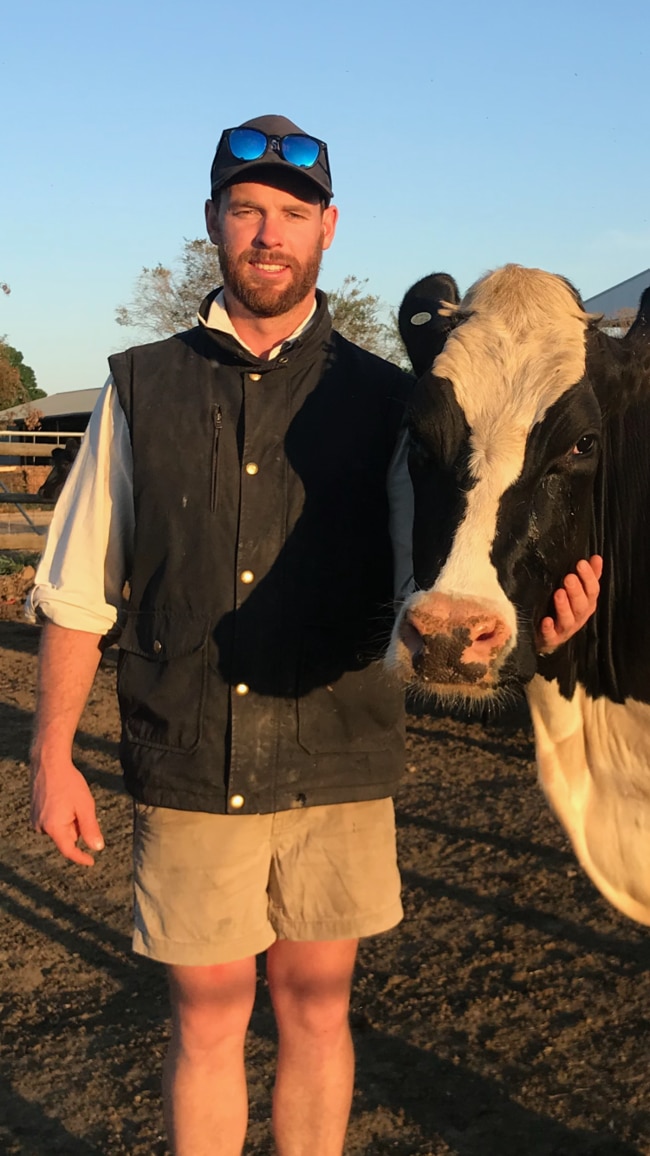
DAIRY FARMER ANDREW MURPHY, KYABRAM, VICTORIA
After receiving an education scholarship from the Victorian Government, Kyabram dairy farmer Andrew Murphy has his sights set on expanding his dairy operation.
With more than 500 milking cows on 380 hectares, his farm is growing fast and the scholarship will allow for him to learn more about the HR and business sides of things.
He has worked on the farm since he finished high school and is currently share farming his current property with his parents.
Rain has fallen at the right time for him this year, making for a “really good season, combined with a strong milk price.”
Andrew said owning a business made for a few obstacles but overcoming them was one of the most rewarding part of his job.
“I enjoy being outdoors, the flexibility of being your own employer and working with animals. It comes with its own challenges but I enjoy that as well,” he said.
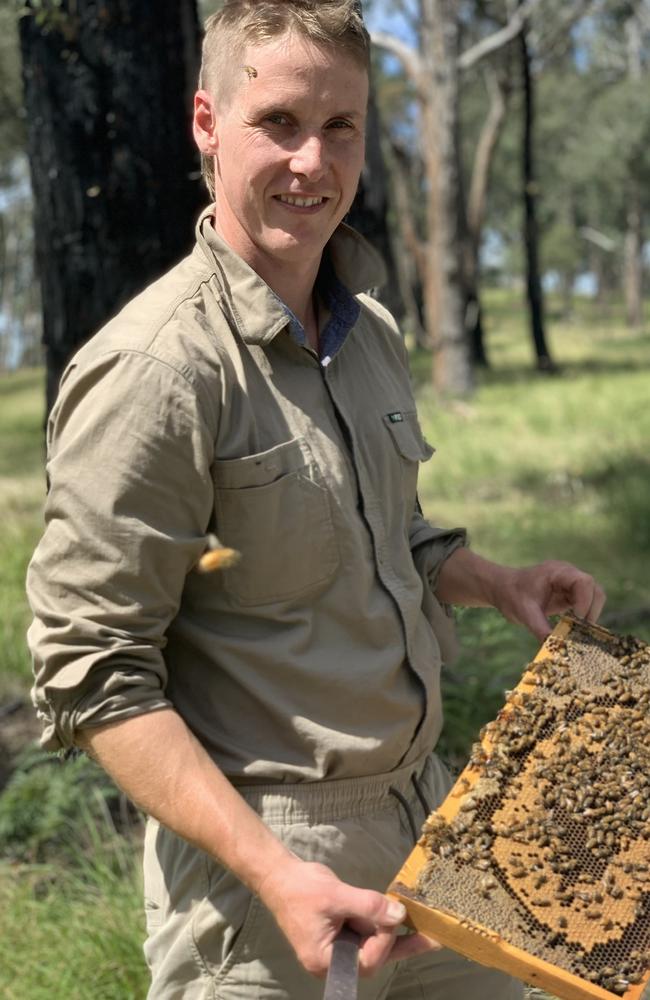
HONEY FARMER BEN MURPHY, BRUTHEN, VICTORIA
Bushfires and the coronavirus pandemic have made it a tough year for East Gippsland honey producer Ben Murphy.
But despite this, Ben’s resilience and achievements as a young farmer have been recognised, after being named as one of four finalists in the 2020 Gippsland Young Agribusiness Leader of the Year Award.
This follows the transformation he and his wife, Stacey, made to their honey enterprise – Tambo Valley Honey.
Ben, who manages 1200 hives, recently expanded the company’s own packaging lines to showcase Gippsland’s floral varieties.
The farmer has also worked on growing Tambo Valley Honey’s business and cash flow by transferring 1000 hives 800km away to pollinate the Robinvale almond orchards, on the south bank of the Murray River in north western Victoria.
And following the January bushfires in East Gippsland — Ben joined other local producers to provide families in communities in need with boxes of fresh local food, including Tambo Valley Honey.
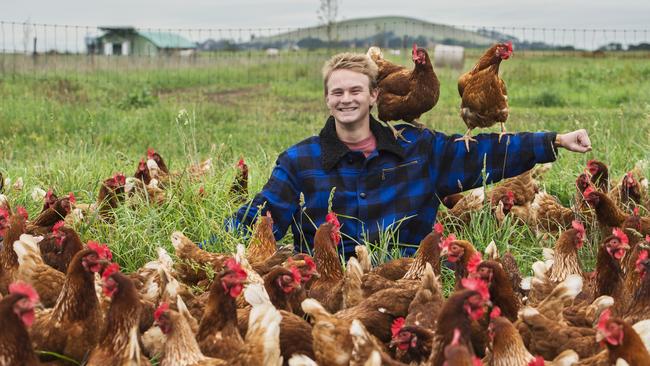
EGG FARMER JOSH MURRAY, KERRIE, VICTORIA
After starting out as just selling eggs for pocket money to neighbours, Josh Murray now supplies his eggs to major supermarkets and independent chains.
And his state-of-the-art egg farm business all started at a young age.
At just nine, Josh said he began selling eggs from his family’s farm to neighbours for pocket money. Now, 11 years later his business – Josh’s Rainbow Eggs is on shelves in 60 major supermarkets, 10 independent retailers and the company employs 15 staff.
The farm has a stocking density of about 500 chooks a hectare and eight custom-designed mobile solar-powered sheds house the birds.
Josh said it was important the chickens were treated ethically on his farm.
“If the chickens are taken care of, then in turn they take care of us,” he said.
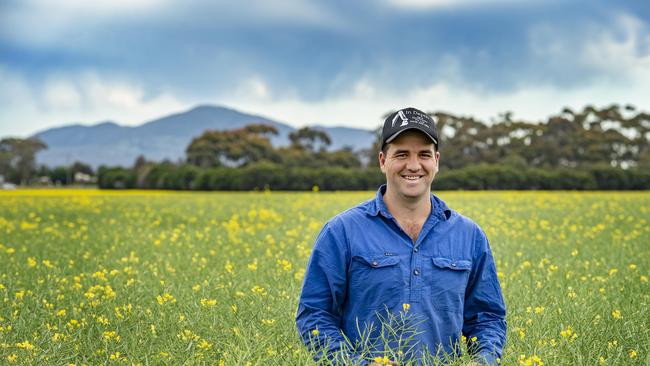
GRAIN GROWER MATTHEW RICHMOND LITTLE RIVER, VICTORIA
Farming doesn’t feel like a job for grain grower Matthew Richmond, who says he loves waking up to do what he does.
The sixth generation Little River farmer runs about 607 hectares with his uncle, producing canola, wheat, barley and oats.
“It has been a perfect year this year, (it has been) the best season so far,” Matthew said.
“I love farming as it doesn’t feel like a job.”
However, not every season has been easy for the grower, who has been through some challenging years, due to dry conditions.
“There were some challenges when we first started as it was a dry area,” he said. “But then we had a few good years.”
Matthew said he was looking to harvest his crops in late November or early December.
“I also contract harvest, and will be heading to Wagga to start harvesting there,” he said.
The farmer said it was important young people to get into farming.
“The older generation are wanting to pass their farms on but it’s sad that some people are not interested,” he said.
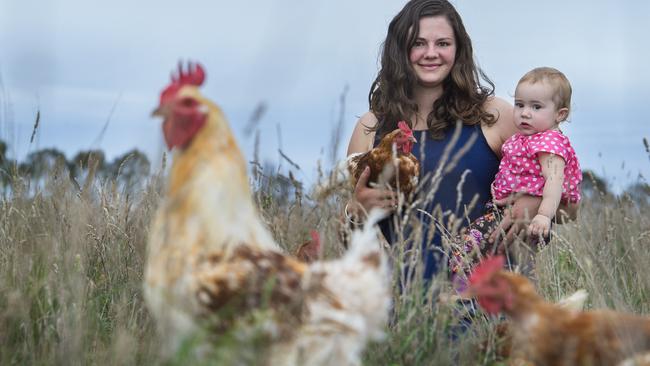
EGG FARMER MADELAINE SCOTT, BOLINDA, VICTORIA
Since 2002, when she was just eight years old, Madelaine Scott has been running her own successful business.
The egg farmer from the Macedon Ranges now runs 3000 certified organic laying hens on 178 hectares.
She is passionate about organic and free-range farming, with her chooks stocked at 250 a hectare and sleeping in mobile “chook-mobiles” built by Madelaine and her dad.
At 19 she was able to expand her operations after raising more than $60,000 from local donors for an egg cleaning and grading machine.
This year has proven her most busy, with panic buying and restaurants closing as a result of coronavirus making eggs a hot commodity.
“The farm gate store is the main one taking up my time. Normally I get five to 10 people a day coming in, now I’m getting more like 50 to 60 a day wanting eggs,” she said.
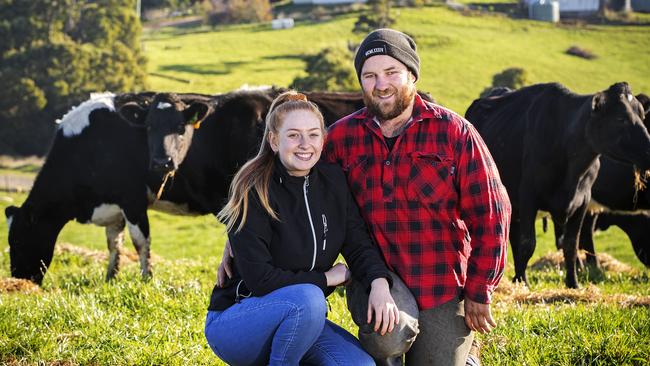
DAIRY FARMER AARON FERGUSON, CALDER, TASMANIA
Young dairy farmer of the year Aaron Ferguson always dreamt of owning his own farm.
After taking eight years away from farming, he has now realised that dream, with a 40-hectare dairy operation in Calder, where he works alongside partner Gabby Mathews.
He milks 100 cows in an autumn-calving system, with his herd comprising a mix of Friesian and Friesian-Jersey-cross cows.
Earlier this year Aaron was recognised with the DairyTas award and has wasted no time in setting a new goal — to go into a 50-50 sharefarming arrangement on a bigger farm.
This goal may be his biggest challenge, with a lack of sharefarming options.
“There’s plenty of people like me who’d love to go sharefarming, but there aren’t as many opportunities out there. It’s a bit sad because it makes it a lot harder for young people to get into the industry because you don’t have that opportunity to build equity through cows anymore,” he said.
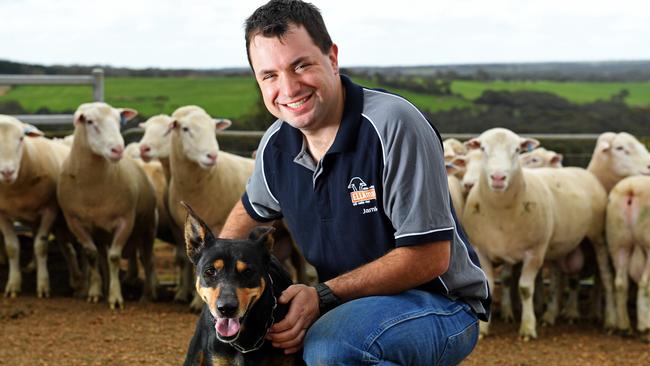
SHEEP FARMER JAMIE HEINRICH, KANGAROO ISLAND, SOUTH AUSTRALIA
Nuffield Scholar Jamie Heinrich wants more young people like him in his industry.
The sheep farmer from Kangaroo Island recently completed his scholarship report, saying the sheep sector is growing and the next generation should capitalise on this.
“Farmers in Australia and across the world are ageing. Agriculture could use a new wave of young people,” he said.
He currently manages his family’s 880-hectare Ella Matta Pastoral business, where they run White Suffolk, Maternal and Poll Merino studs.
Jamie said educating young minds about the potential in farming and about how to overcome financial barriers, as well as providing them with industry connections would help attract more workers.
“The future of agriculture requires the best and brightest. Agriculture needs an ever-widening range of skills; therefore, a matching range of career and study paths are required to attract and develop the right people,” he said.
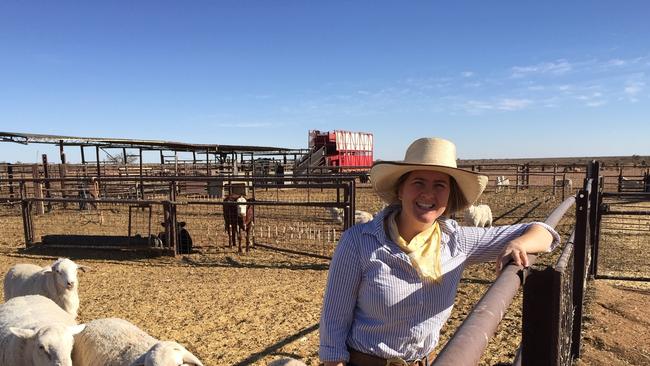
SHEEP AND BEEF FARMER ELLEN LITCHFIELD, MARREE, SOUTH AUSTRALIA
The impact of climate change on red meat production is something South Australian pastoralist Ellen Litchfield knows all about.
Based in Marree, 700km north of Adelaide, Ellen worked as a vet in London for a year where she noticed the decline in beef’s ‘cool’ factor. It was because of this that she decided to come back to the family’s sheep and cattle farm and undertake a Nuffield Scholarship, studying climate change on cattle production.
“My family has been successfully farming here for over 50 years, but climate change poses a new threat to this way of life, not just because of the risk of this area getting even drier but also our social licence to run cattle and sheep,” she said. “
“I wanted to understand the role that ruminants play in climate change and how we can ensure that our production systems are decreasing their emissions.”
During her studies, Ellen found that pastoralists would play a big role in ensuring the sustainability of agriculture and trust within the food system.

SHEEP FARMER IAN CAMERON, JERILDERIE, NSW
Setting and achieving goals on the farm is what sheep and beef farmer Ian Cameron enjoys most.
He has recently returned to work on his family’s 13,300-hectare Jerilderie property and completed his first major project in creating a containment yard to help feed the 6000-head of sheep through drought.
“Breeding with sheep you can set goals and see how you’re progressing. I like that you can make improvements and see that through and then see how it benefits the farm,” he said.
It has been a successful year of ram selling for their The Yanko Merino stud, which Ian has taken the lead on managing.
Prior to coming back to the farm, he studied agricultural economics in Sydney and worked in a bank before he realised what he wanted to do.
“The more I did the more I realise that I wanted to be back on the farm,” he said.
He now looks forward to being able to take over the property as a whole.
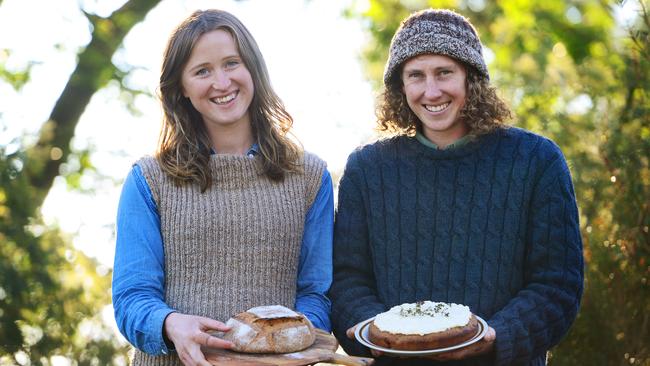
GRAIN GROWER IAN CONGDON, BERRIGAN, NSW
Ian Congdon and partner Courtney Young delved into their organic Woodstock Flour business when the pair were contemplating a return to the Congdon family’s 810-hectare property at Berrigan in southern NSW.
“We wanted to make the family farm more viable by adding an enterprise,” Ian said. “You see so many farms fail because they aren’t getting a fair price for what they produce.”
Courtney said the idea of Woodstock Flour started as “an experiment” and a “bit of fun” with low start-up costs to see if it could work.
“We didn’t realise there would be the demand for flour there was,” she said.
“It mainly came from markets wanting us to sell, and then came the bakeries.”
The couple mill 100kg of flour a week, and sell wholegrain wheat flour and wholegrain rye flour and they sell at farmers’ markets and to bakers in Albury and Melbourne.
Woodstock Farm has about 140 hectares of crops including rye, wheat, oats, spelt and Khorasan.
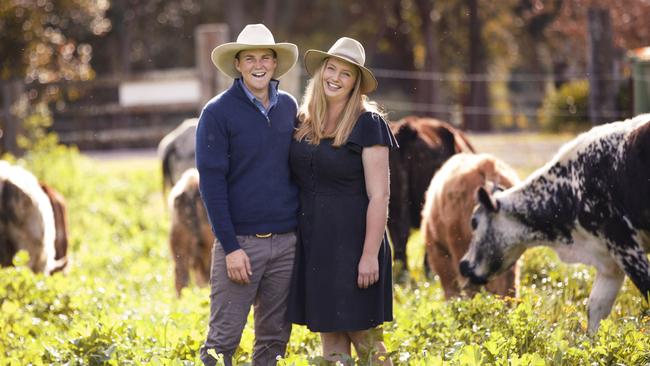
BEEF, CHICKEN AND EGG FARMERS HANNAH GREENSHIELDS AND TIM EYES, YARRAMALONG VALLEY, NSW
A desire to connect people with the story of their food is what got first-generation farmers Hannah Greenshields and Tim Eyes started in agriculture.
The couple run The Food Farm in the Yarramalong Valley, an hour from Sydney, where they produce grass-fed and grass-finished beef, along with pasture-raised chicken and eggs, selling direct to customers online and at local markets.
“We love farming nourishing food and having the opportunity to hand it directly to our customers. It’s pretty special hearing about the meals that they have created from an animal that we had bred and lovingly tended to for months before making it to their dinner table,” Hannah said.
They currently lease 60 hectares of land as a “way to get our foot in the front door without having to take on the mortgage and risk of a farm.”
“Despite being surrounded by lush, fertile farms just an hour from Sydney that were perfect for growing nutrient dense food, we saw that the farms were slowly being divided up for lifestyle and horse properties. We saw this as an opportunity to lease small farms from owners who just wanted the lifestyle but not the hard work that comes with farming,” Hannah said.

FIG AND OLIVE GROWER JODIE NEWALL, WALLAROO, NSW
Better known to her customers as ‘the fig lady’, Jodie Newall has quite the extensive side hustle going on.
The full-time lawyer spends her time outside of work on the family’s Wallaroo property, where they grow olives and figs on 40.5 hectares under the brand Hundred Acres Produce. Their olive oil and fig products have been recognised with awards at the Royal Canberra and Sydney Shows and are supplied to some of Canberra’s top restaurants.
On top of all this, the family run horses for agistment, and Jodie rides at an international level.
Jodie said while she finds the farm business enjoyable and rewarding, it was a learning experience that she couldn’t have done alone.
“It’s definitely a family endeavour, we couldn’t do it without each other,” she said. “You learn by doing and making mistakes and finding out what works and doesn’t that particular season.”
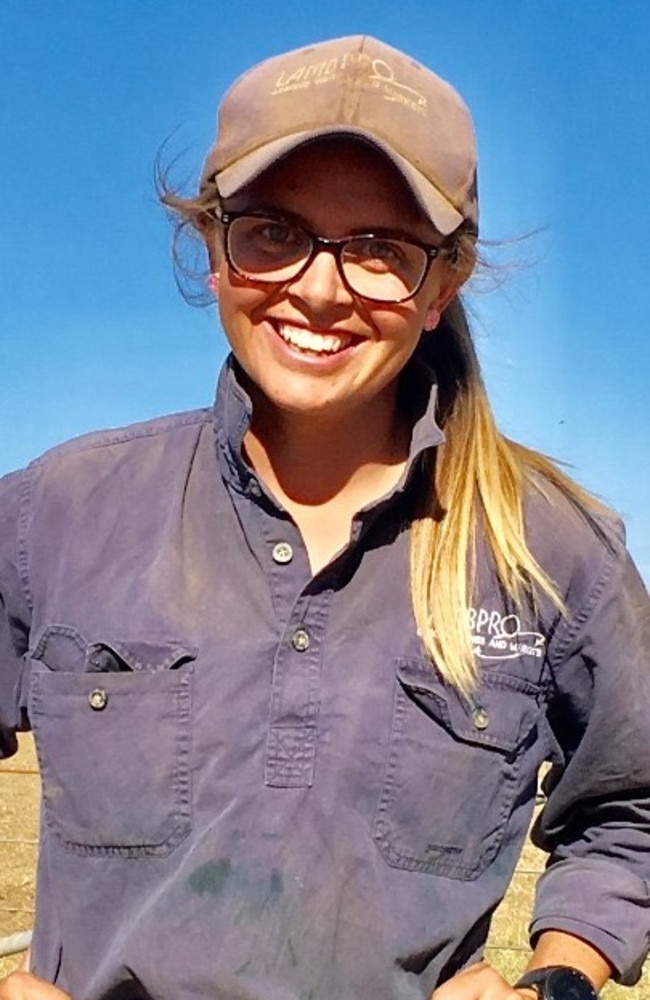
SHEEP AND BEEF FARMER ROZZIE O’REILLY, HOLBROOK, NSW
Rozzie O’Reilly has high hopes for the future of agriculture.
She is currently a breeding manager for Lambpro, working under former The Weekly Times Farmer of the Year Tom Bull, with the ultimate goal to own her own farm.
After gaining a degree in animal science majoring in livestock production, heading into farming was the obvious next step for the 28-year-old, who grew up on a cattle farm at Narrandera.
Rozzie and her partner also run their own livestock business on a leased farm.
Having her first taste of the sheep industry in Year 10 work experience, Rozzie said she had found people were always willing to listen to the younger generations.
“I think if you’re young and willing to have a crack in agriculture there’s always opportunities
If you show you have the passion for the industry and want to do well towards the industry people are willing to give you a go,” she said.
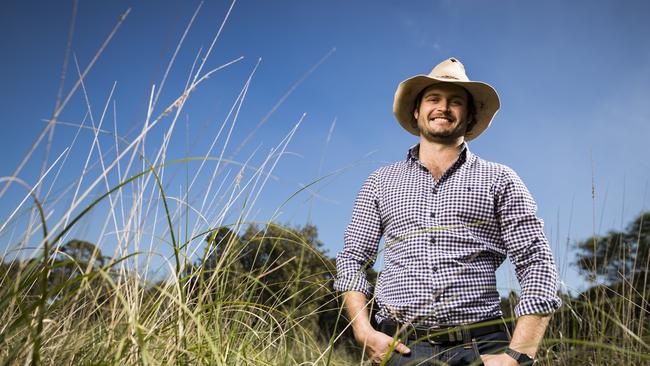
SHEEP FARMER AND GRAPE GROWER, HARRY ROBERTSON, GOOLGOWI, NSW
Goolgowi’s Harry Robertson may have made his TV debut in this year’s season of Farmer Wants a Wife, but the sheep and grape farmer is much more comfortable in the paddock.
Running his operation on 2630 hectares, Harry has 100 hectares of wine grapes and 1000 Dorper sheep. Before drought hit he was also growing cotton.
The idea for applying for the reality dating show came from a friend’s partner, and he agreed because “in the drought not much was going on so I thought I may as well use my time well.”
He hoped his time on the show would help in not only finding himself love, but raising the profile of his local area.
“It’s good for the community, to get people talking, a bit of a buzz, maybe promote the area. Something to laugh and smile about rather than just focusing on the drought.”
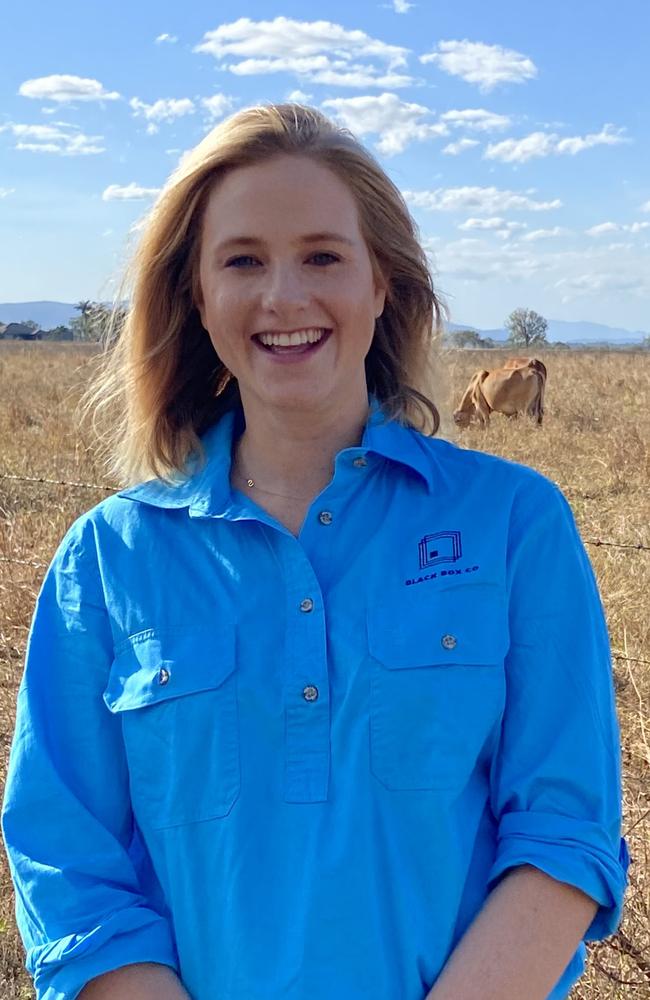
BEEF FARMER SHANNON SPEIGHT, MAREEBA, QUEENSLAND
Mareeba vet Shannon Speight’s hard work has helped fill a gap in the market for livestock genetics.
Scanning heifers across Queensland, Northern Territory and Western Australia, Shannon has been able to provide producers with insight about choices to boost their profits.
The solution was a software program called Black Box Co, which analyses historical data to identify decisions that lead to price penalties or premiums.
On top of this Shannon and husband, Luke, recently bought 161 hectares at Millstream, where they will develop their own breeding herd.
Shannon said her analytic work had been rewarding and something all producers should do.
“For one pastoral company, we were able to outline where they had lost $750,000 in carcass discounts,” she said.
“Unless you are on top of your data and analysing it, you don’t see that until you have lost it.”
